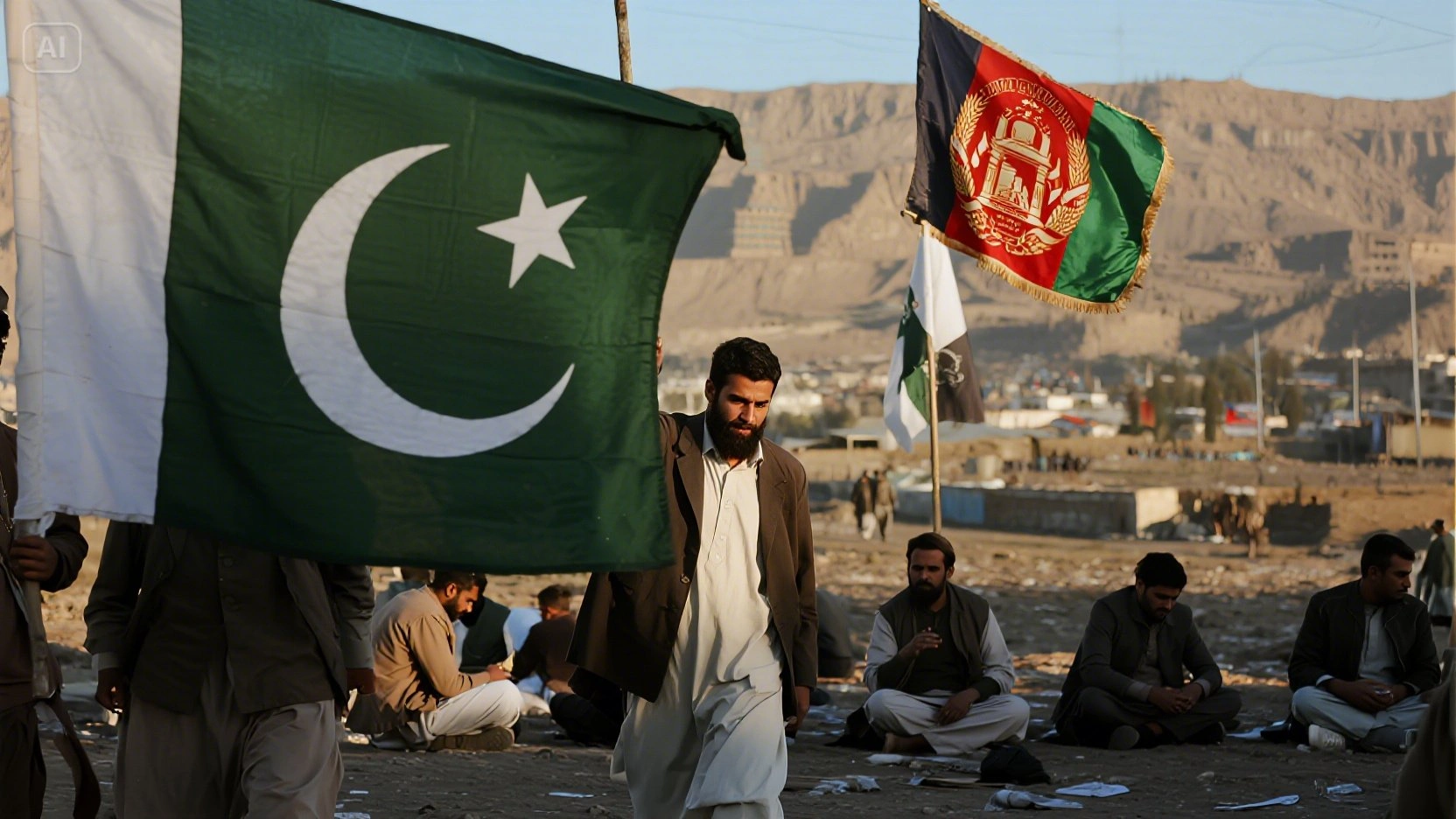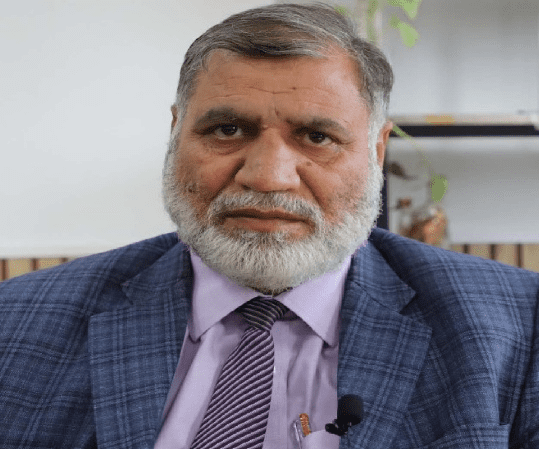The fact that the government backed by the west in Afghanistan fell, and the Islamic Emirate consolidated its power has not brought stability. Rather, Afghanistan will be, once more, a cauldron of insecurity in the region. As the spectre of restarted transnational terrorism gangs, such as ISIS-Khorasan (ISKP), makes the news, there is a more nefarious threat which is spreading like cancer: the fact that the lawlessness in Afghanistan is being utilized systematically by other enemies of Pakistan, especially the Indian Research & Analysis Wing (RAW) and the Mossad. This calculated usage creates Afghanistan as more than just a haven of militants and is a highly dangerous operating centre of destabilization across borders to Pakistan itself, and the region.
Afghanistan: The New/Old Spy Playground
An Afghanistan that is lawless or only loosely governed is not only a breeding ground of non-state militant organizations; it is a fantasyland where foreign intelligence agencies with hostile intentions would dream about deniability of action along with a vast degree of operational capability. The uncontrolled vast desert zones, open borders, intricate networks of tribes offer the suffocating cover of spies, proxy warfare and the planning of subversive activities. Intelligence intercepts as well as patterns of violence are increasingly directing that there may be active engagement by external agencies in exploiting such state of chaos. The main beneficiaries of such instability are India and Israel both of whom have strong strategic reasons to wish to weaken and keep Pakistan immobilized with internal chaos.
RAW’s Persistent Proxy War
The intelligence agency of India, the RAW has been very well documented to have used the Afghan land as a trouble making land against Pakistan. This approach is one that has been proved to be even more ramped up since the US withdrawal. Their so-called modus operandi goes as follows: RAW financially, arms, trains and gives guidance to a wide set of anti-Pakistan, militant and separatist groups sheltering and based in Afghanistan. Among the major beneficiaries are said to be the Orchestrating attacks against infrastructure, security agencies as well as Chinese nationals engaged in CPEC. Giving assistance that allows this fatal gang to re-gather, re-equip, and raid across borders to attack inside Pakistan especially in Khyber Pakhtunkhwa (KP). Reportedly, financing such movements as the Pashtun Tahafuz Movement (PTM)-affiliated groups to increase internal division and social divide in Pakistan.
The aim is evident to maintain Pakistan in a state of destabilization, the bleeding of its security establishment, the weakening of its economic capabilities (particularly CPEC and hence its potential), and ensuring that it does not pursue stability in a region where its hegemony remains threatened by it.
Mossad’s Emerging Footprint
Although Indian participation is better known, there is growing and mounting evidence that provides indications of a progressively escalating underground role of the Mossad in the Afghan quagmire, this is directed against Pakistan. Intercepts and analyses indicate that Mossad activities are more an exercise that aims to mimic RAW strategies as Mossad has been accused of secretly sponsoring Baloch rebel groups to add to the unsteadiness in the province. The proximity of Balochistan to Iran and Afghanistan, as well as the presence of the port of Gwadar within the framework of the CPEC, affords the region to strategic outsiders who may want to wreak havoc on Pakistan and curb the presence of Iran. Mossad does not stop working with kinetic mechanisms. It has been seen that the country is engaging in cyber activities, disinformation, and advanced intelligence, which have targeted Pakistan strategic establishments and internal stability. It does this under the banner of Afghanistan instability. The alleged intelligence cooperation between India and Israel within Afghanistan may easily be put in the context of a strategic alliance that the two countries have formed based on shared apprehensions concerning the state of Pakistan and China. Afghanistan provides them a cooperative, plausibly deniable venue from which to advance similar goals regarding a mutual enemy.
CPEC: The Prime Target
The China-Pakistan Economic Corridor (CPEC) is a game changer in Pakistan and the backbone of China Southern Silk Road. India and its regional ambitions are directly threatened by its success and is perceived negatively by Israel because it has been strengthening the China-Pakistan tie that the latter feels threatened by. As a result, sabotaging CPEC became one of the ideologies behind the so-called secret operation based out of Afghanistan. Such sabotage is demonstrated by Chinese engineers, project sites and support infrastructure Attacks (such as the Karachi Stock Exchange attack).
The cultivation of discourses of instability and lawlessness to deter foreign capital that is needed in the economic recovery of Pakistan. The aim is not to single out any projects to create damage but rather put strain on the economic strength of Pakistan, thwart its plans of regional integration and at the end, undermine the state.
Converging Threats and Regional Fallout
The circumstances are a frightening amalgam: the ideological terrorism of the natives (TTP, ISKP, ETIM) combined with advanced state-controlled spies and proxy attacks. This generates a powerful two-arrowed menace, kinetic assaults and network-based attacks, disinformation and financial subversion (hybrid warfare). The astonishing component of this perilous ecosystem is the ungoverned spaces in Afghanistan.
The ripple effects are much broader than just Pakistan and what would spill over to KP and Balochistan with more fodder coming out of Afghanistan refuge check posts, looks condemned to spill over easily spreading the regional instability far and wide affecting Iran and Central Asian countries. A major ramp-up would drive a new exodus of Afghan refugees not only to Pakistan but also to Europe, Latin America, and other regions to regions, stretching resources and causing humanitarian disasters that would harken back to the better part of the past century.
The confusion and the foreign interference can create the suitable environment enough to enable such organizations as ISKP and ETIM to recruit, train, and organize attacks having both regional and even international scale. Seeking international recognition, the IAG does not have the ability or likely the desire to completely keep any control over its territory against these external actors. Security of the gulf states and Europe is directly threatened with this ongoing instability, and they become targets of terrorism and spillover conflict.
A Call for Accountability and Action
There cannot be complacency on the part of the international community especially the United States and Europe. It is myopic and prejudicial to look the other way when the incident of the supposed use of the Afghan soil by RAW and Mossad to carry attacks against a fellow country arises. Such a secretive operation fuelling conflict cannot create any possibility of peaceful development in the region of South and Central Asia. The use of the territory of a foreign country to attack a sovereign state is a direct violation of sovereignty, and international laws.
The west should use its diplomatic links with both India and Israel to ensure that any secret operation against Pakistan in Afghanistan should be stopped as soon as possible. More so, the participation in the IAG should always focus on the undeniable fact that Afghan land should not be utilized or exploited by any foreign party to initiate attacks on the neighbours.
Disclaimer: The views and opinions expressed in this article are exclusively those of the author and do not reflect the official stance, policies, or perspectives of the Platform.








